Testosterone Deficiency Male Depression
Testosterone deficiency have been implicated in the development and regulation of mood, and low levels of testosterone have been associated with an increased risk of male depression.
TESTOSTERONE DEFICIENCY & MALE DEPRESSION
Male testosterone deficiency, also known as hypogonadism, refers to abnormally low levels of testosterone in men.
This hormonal imbalance can have a significant impact on physical, emotional, and mental well-being. Studies have shown a strong association between low testosterone levels and an increased risk of developing depressive symptoms.
Testosterone plays a role in regulating mood, energy, and motivation, and its deficiency can contribute to feelings of sadness, fatigue, irritability, and decreased overall quality of life.
Addressing testosterone deficiency through appropriate medical interventions, such as hormone replacement therapy, may help alleviate depressive symptoms and improve mental health in affected individuals.
IN THE WOMB
The development of the male reproductive system is intricately influenced by a delicate balance of genetic and hormonal factors. It is a remarkable process that unfolds during human fetal development.
In the process of procreation, the act of orgasm serves as a crucial step where male sperm and female ovum unite, initiating conception. This union marks the beginning of a new human life, one that will be nurtured and protected within the womb for approximately nine months.
THE MALE FETUS
The process of male sexual selection takes place at eight weeks gestation. The pivotal event is facilitated with the fertilization of an egg by a sperm carrying a Y chromosome.
In male fetuses, the gonads, develop into testes. The testes then start producing and releasing the hormone testosterone, which plays a crucial role in the development of male reproductive structures and characteristics.
THE MALE SEXUAL PEAK
A male reaches his sexual peak during their late teens or early 20s. Testosterone, the primary male sex hormone, typically reaches its highest levels during adolescence and early adulthood, contributing to increased sexual drive and performance.
TESTOSTERONE AND THE 30 YEAR OLD MALE
Male testosterone levels typically start to decline around the age of 30. Testosterone is not only involved in reproductive functions but also plays a role in regulating mood. Therefore, when male testosterone levels decrease, it can potentially impact his sexual stamina, his overall well-being, his erectile engorgement and mental health.
TESTOSTERONE AND THE 40 YEAR OLD MALE
After the age of 40, it is common for testosterone to decrease by about 1-3% per year. This decline can have implications for a man’s physical, metabolic, and cognitive health.
Testosterone levels can contribute to changes in his body composition with a gradual decrease in muscle mass and strength, along with an increase in body fat. As testosterone declines, men may notice changes in their metabolism, including a slower rate of calorie burning. This can make it more challenging to maintain a healthy weight or lose excess body fat.
TESTOSTERONE BEYOND HIS 50 YEARS
By the age of 50, it is common for an adult male to have approximately half the testosterone levels compared to when he was in his 20s. This decline in testosterone can vary among individuals and may occur at different rates. This decline is a natural part of aging and does not necessarily mean a complete loss of sexual function or desire.
The decline of the hormone testosterone can contribute to a range of physical and psychological changes. Physically, it can lead to reduced muscle mass and strength, decreased bone density, increased body fat, and changes in sexual function, such as decreased libido and erectile dysfunction.
MALE DEPRESSION & LOW TESTOSTERONE LEVELS
Low testosterone levels in some men may contribute to an increased risk of developing or experiencing symptoms of depression. It is to be noted, that not all men with low testosterone levels will develop depression, and not all individuals with depression have low testosterone levels.
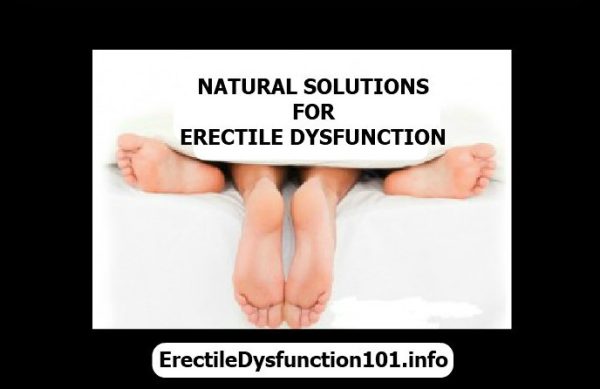
TWO 30 YEAR OLD CLIENTS WITH TESTOSTERONE DEFICIENCY
In my career as a Certified Sexological Bodyworker, I particularly remember two male clients in their thirties, who I suspected may be testostone deficient.
One male client suffered from erectile issues and the other was having problems getting his wife pregnant. I suggested that both these men should book an appointment with a specialist male hormone health doctor.
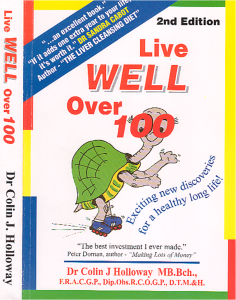 My doctor of choice is Dr Colin Holloway who has a medical practice in Caboolture, north of Brisbane Queensland.
My doctor of choice is Dr Colin Holloway who has a medical practice in Caboolture, north of Brisbane Queensland.
Dr Holloway specialises in male bio-indentical hormone health and has a keen interest in living well over 100 years old in perfect male health. See his book to the left.
What is a Sexological Bodyworker – Click Here
MY TWO 30 YEAR OLD CLIENTS CONT.
On following up with my two male clients, I discovered that Dr Holloway prescribed pharmaceutical drug ‘Clomid’ to stimulate their low testosterone production. I did personally chat to Dr Holloway about Clomid, he said “I do not prescribe testosterone replacement therapy (TRT) in young men because it can cause testicular atrophy, which means TRT can shrink their testicles”.
Here is some information about Clomid;
Clomid can increase testosterone production by stimulating the release of luteinizing hormone (LH) from the pituitary gland. LH plays a crucial role in signaling the testes to produce testosterone. By increasing LH levels, Clomid can potentially enhance testosterone production and raise testosterone levels in men with hypogonadism or low testosterone.
There are a few doctors who specialise in bio-identical hormones and I would suggest a google search to find a specialist doctor in your area.
ABOUT BIO-IDENTICAL HORMONE REPLACEMENT
Bio-identical hormones, a natural alternative, are hormones that are structurally identical to the hormones naturally produced in the human body. They are derived from plant-based sources, such as soy or yam, and are designed to mimic the molecular structure of hormones like estrogen, progesterone, and testosterone.
PHARMACEUTICAL TESTOSTERONE REPLACEMENT
Testosterone is available in various forms, including oral, inject-able, transdermal, and implants. However, the oral route is generally not recommended due to the high risk of liver toxicity. Some newer oral forms claim to be absorbed through the lymphatics, bypassing the liver and reducing toxicity.
Injectable testosterone is considered safe, but it may not maintain consistent blood levels, and any excess can be converted to estrogens, which can disrupt the testosterone-estrogen balance. Therefore, doses must be customized to achieve normal blood levels of testosterone. With appropriate therapy, significant improvement in symptoms can be expected.
Recently, patches, pellets, creams, and gels have also become available. The choice of the administration route and formulation depends on factors such as availability, safety, patient’s socio-economic status, long-term safety and efficacy evidence, and the preferences of the patient and the prescribing doctor / andrologist.
18 SYMPTOMS OF TESTOSTERONE DEFICIENCY
Testosterone deficiency can manifest in various ways, impacting multiple aspects of physical, cognitive, mood, and sexual function. Here are 18 symptoms commonly associated with testosterone deficiency:
-
Reduced Muscle Strength: Testosterone plays a vital role in maintaining muscle mass and strength. Low levels can lead to decreased muscle strength and overall physical performance.
- Impaired Physical Co-ordination: Testosterone deficiency may affect coordination, making movements feel less precise and coordinated than usual.
- Impaired Balance: Some individuals with low testosterone levels may experience difficulties in maintaining balance, leading to a sense of instability.
- Physical Frailty: Lower testosterone levels can contribute to a decline in overall physical resilience and an increased vulnerability to injuries and physical stress.
- Impaired Concentration: Testosterone plays a role in cognitive function, including concentration. Low levels may lead to difficulties in focusing and maintaining attention.
- Impaired Verbal Memory: Testosterone deficiency can impact verbal memory, making it more challenging to recall and retain information.
- Impaired Visual-spatial Awareness: Testosterone plays a role in spatial cognition, and reduced levels can affect visual-spatial awareness and navigation skills.
- Sleep Dysfunction: Testosterone deficiency has been associated with sleep disturbances, including difficulties falling asleep (insomnia) or excessive daytime sleepiness (narcolepsy).
- Reduced Sense of General Well-being: Lower testosterone levels can contribute to a decreased overall sense of well-being and diminished enjoyment of life.
- Reduced Energy & Motivation: Testosterone is linked to energy levels and motivation. Deficiency can result in decreased energy levels and a lack of drive or motivation.
- Anxiety: Some individuals with testosterone deficiency may experience increased feelings of anxiety or a heightened sense of worry.
- Depression: Low testosterone levels have been associated with an increased risk of experiencing depressive symptoms.
- Irritability: Testosterone deficiency may contribute to irritability and a shorter temper than usual.
- Reduced Sexual Desire: One of the hallmark symptoms of testosterone deficiency is a decrease in sexual desire or libido.
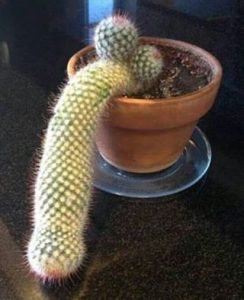 Infrequent or Absent Nocturnal Erection & Erection on Awakening: Testosterone plays a crucial role in maintaining healthy erectile function. Low levels can lead to a decrease in spontaneous erections during sleep and upon waking up.
Infrequent or Absent Nocturnal Erection & Erection on Awakening: Testosterone plays a crucial role in maintaining healthy erectile function. Low levels can lead to a decrease in spontaneous erections during sleep and upon waking up.- Impaired Erectile Function: Testosterone deficiency can result in difficulties achieving and maintaining erections necessary for sexual activity.
- Impaired Ejaculatory Function: Some individuals with low testosterone may experience challenges with ejaculation, including reduced force or volume.
- Impaired Orgasmic Function: Testosterone deficiency can affect orgasmic function, leading to diminished intensity or pleasure during sexual climax.
It’s important to note that Male Testosterone deficiency symptoms can vary in severity and manifestation from person to person. If you suspect testosterone deficiency, it is recommended to consult with a healthcare professional for proper diagnosis and treatment options.
MEDICAL DISCLAIMER: Please refer to the bottom of this blog web-page to see my medical disclaimer.
Testosterone Deficiency Male Depression
.
.
CONTACT DETAILS
Ms. Aleena Aspley
Certified Somatic Sexologist / Sexologial Bodyworker
Location: North Brisbane, Queensland, Australia
Mobile: 0404 449 433 (TEXT ME TO BOOK)
International: +61 404 449 433 (TEXT ME TO BOOK)
Website: www.YoniWhisperer.com
Website: www.LingamWhisperer.com.au
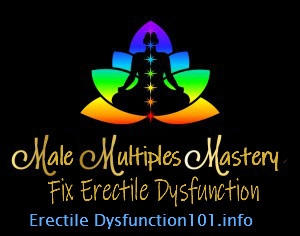
Testosterone Deficiency Male Depression
MEDICAL DISCLAIMER:
The information provided on this website is for educational purposes only and is not intended to replace professional medical advice, diagnosis, or treatment.
Always seek the advice of a qualified healthcare provider with any questions you may have regarding a medical condition.
The content on this website should not be considered as a substitute for professional medical advice, diagnosis, or treatment. Reliance on any information provided on this website is solely at your own risk.
While every effort has been made to ensure the accuracy and reliability of the information presented, the website owners and authors cannot be held responsible for any errors or omissions or for any consequences resulting from the use of the information provided.
The information on this website is subject to change without notice.
The website owners and authors do not endorse or recommend any specific medical treatments, products, procedures, opinions, or other information mentioned on this website. Any reliance on such information is solely at your own risk.
It is important to consult with a qualified healthcare professional before making any decisions or taking any actions based on the information provided on this website.
Individual responses to treatments and healthcare recommendations may vary, and the website owners and authors are not responsible for any outcomes or results that may occur as a result of following the information presented.
By accessing and using this website, you acknowledge and agree to the terms of this medical disclaimer.
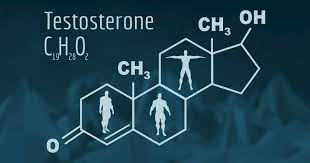

Pingback: Lingam Massage Blog - Tantric Massage for Men BrisbaneLINGAM WHISPERER BODYWORK